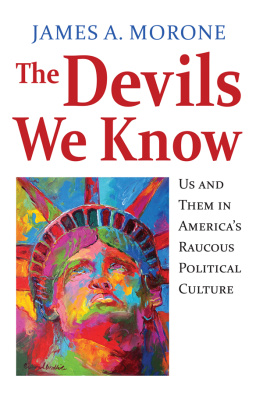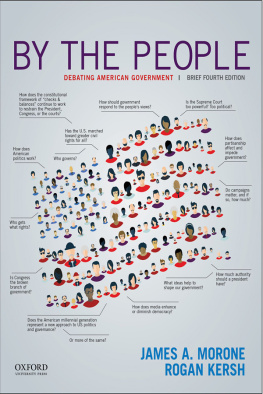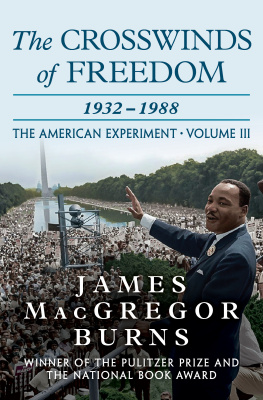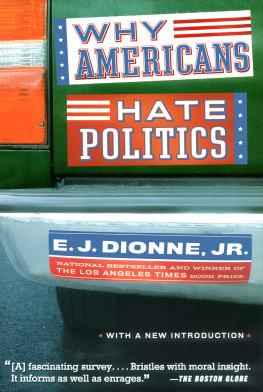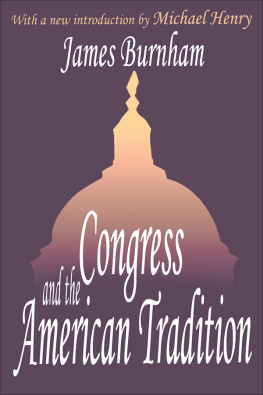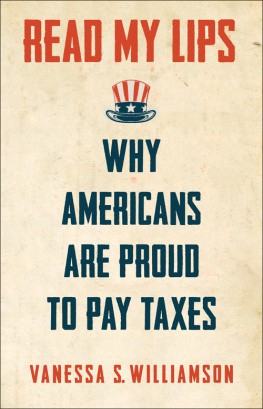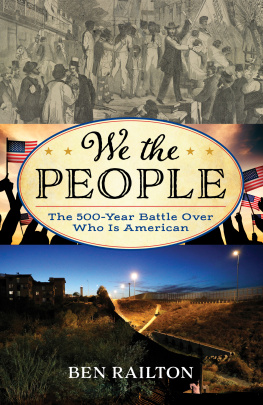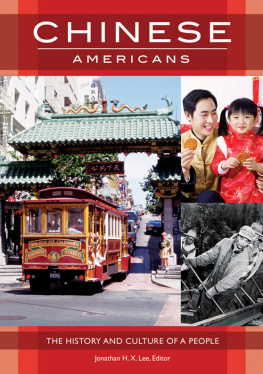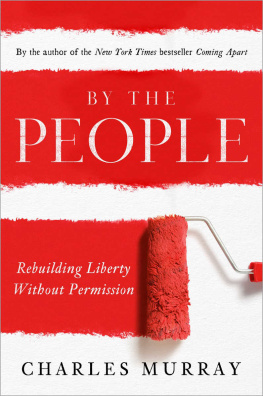THE DEVILS WE KNOW
Also by James A. Morone
Health Care Politics and Policy (2014). Edited with Dan Ehlke.
By the People: Debating American Government (2013). With Rogan Kersh.
Heart of Power: Health and Politics in the Oval Office from Franklin Roosevelt to George W. Bush (2009). With David Blumenthal.
Healthy, Wealthy and Fair: Health Care for a Good Society (2005). Edited with Larry Jacobs.
Hellfire Nation: The Politics of Sin in American History (2003).
The Democratic Wish: Popular Participation and the Limits of American Government (1998).
Health Care Policy in the USA and Germany: Market Forces in Cross National Perspective (1996). Edited with Bernard Braun, Johann Behrens, and Deborah Stone.
The Politics of Health Care Reform: Lessons from the Past, Prospects for the Future (1994). Edited with Gary Belkin.
The Politics of Innovation: The Evolution of Hospital Regulation in New Jersey (1983). With Andrew Dunham.
2014 by the University Press of Kansas
All rights reserved
Published by the University Press of Kansas (Lawrence, Kansas 66045), which was organized by the Kansas Board of Regents and is operated and funded by Emporia State University, Fort Hays State University, Kansas State University, Pittsburg State University, the University of Kansas, and Wichita State University
Library of Congress Cataloging-in-Publication Data
Morone, James A., 1951
The devils we know : us and them in Americas raucous political culture : essays / by James A. Morone.
pages cm
Includes index.
ISBN 978-0-7006-2010-4 (hardback : alkaline paper)
ISBN 978-0-7006-2179-8 (ebook)
1. National characteristics, American. 2. Political cultureUnited States. 3. Cultural pluralismUnited States. 4. Social conflictUnited States. 5. United StatesSocial conditions. 6. United StatesPolitics and government. I. Title.
E169.12.M678 2014
306.0973dc23
2014026623
British Library Cataloguing-in-Publication Data is available.
Printed in the United States of America
10987654321
The paper used in this publication is recycled and contains 30 percent postconsumer waste. It is acid free and meets the minimum requirements of the American National Standard for Permanence of Paper for Printed Library Materials Z39.48-1992.
To my coauthors, companions, fellow travelers, and friends.
Writing with you has been special.
David Blumenthal
Roger Kersh
and
Larry Jacobs
PREFACE AND ACKNOWLEDGMENTS
In the winter of 1940, a dean at Columbia University called the guidance counselor at Curtis High School on Staten Island and told him the university had a place for an Italian under its quota system. My dad got the interview. He enrolled at Columbia and eventually joined a fraternity reserved for Italians and Jews. The fraternity brothers referred to their fellow students as the Americansin that era, Italians and Jews still lingered on the margins. But my dad and his classmates did not have much time to worry about all that. In their sophomore year, the United States plunged into World War II, and the college boys all rushed to sign up for military service. When they returned, almost four years later, there was no more talk about Italian-Jewish fraternities or the Americans. They were all Americans now.
My mother lived a more harrowing version of the same story. She grew up in Cracow, Poland, and was a child when the Germans and Soviets invaded in 1939. Her father, a physician, joined the Polish army and was killed by shrapnel to his face while trying to operate on the battlefield. My mothers aunt, also a physician, administered a lethal injection to her own mother and herself as they huddled in a cattle car rolling toward a concentration camp. (It was not till I was in college that I discovered my moms familymy familywas Jewish.) My mother spent the war in a Siberian camp and, after a long series of near miracles, ended up in Brazil, where she met my dad, now a business executive in Rio. My mothers route was terrifyingthrough bomb shelters and work campsbut it too eventually ended with her becoming an American.
My brothers and I grew up in Brazil. Brazilians being what they were, we came to expect the goodwill of strangers. They would stop us on the street and exclaim how handsome we looked. Our baba would laugh while we cheerfully answered the silly adult questions. It wasnt just us. Thats how Brazilians appeared to treat all (middle-class) kids.
There was another Brazil of course. Ill not forget the homeless boys my own age sleeping on crumpled newspapers outside the movie theater. Or the day we passed a fellow who had been shot dead by police (but why?) lying on the street surrounded by candles and a mutinous little crowd. Another time, I watched from my third-grade classroom as a man, presumably from the nearby favela, stole into the schoolyard, took a large piece of plywood from a burn pile, and started to walk off with it. He hadnt gotten very far when a nun appeared, screamed at him, yanked the wood out of his hands, and chased him away. They were just going to burn that wood, I thought. Why not let the guy have it? And why did the big fellow listen to the little nun? My parents somehow didnt share my outrage. Something peculiar was going on at the margins of our comfortable world, but before I was old enough to puzzle it out, my dad came home with magical news: we were moving to America.
Suddenly, my brothers and I were strangers in an exciting new land. The rules and expectations were all different. Here, you could drink water directly from the tap. Everyone had televisions. They dyed their oranges in the remarkable supermarkets. But you couldnt wear shorts without being ridiculed (shorts for men would come into fashion a few years after we arrived). And no one ever stopped us on the street, told us how handsome we were, and asked silly questions. But these were little things. We soon confronted something deeper and more disquieting.
One summer day, not long after we arrived, we took a walk along the beach at Wolfe Pond Park on Staten Island. As we strolled along, my brother Joe (age seven) piped up: Why are the black people all here? And the white people all over there? Strange, I hadnt noticed. But we had crossed an invisible line, and the beachgoers around us were now all African Americans. But what really arrested my attention was my dads reaction. He was frightened. I had never seen my father frightened before. But why? Why did the people around usjust families with kidsscare him?
That afternoon at the beach was the first time I became conscious of race. It had never occurred to me, in Brazil, to think in terms of black and white. The homeless kids sleeping on the sidewalk, the man stealing wood, and the corpse lying on the street were all poor. They were all different from us. They were somehow (I had only the vaguest sense of this) repressed. But at least to the naive eight-year-old mind, there was nothing racial about themand nothing especially racial about us, or so I thought. (Only much later would I learn that slavery lasted three decades longer in Brazil than in the United States, that both nations had agonized racial stories, and that the privileged are alwaysin every societyconnected to the poor.) All I knew was that race seemed so much more visible in our new country. Here was another thing to tack onto the list of things to figure out about the United States: the sharp black-white antinomy that now ran across all our beaches.

